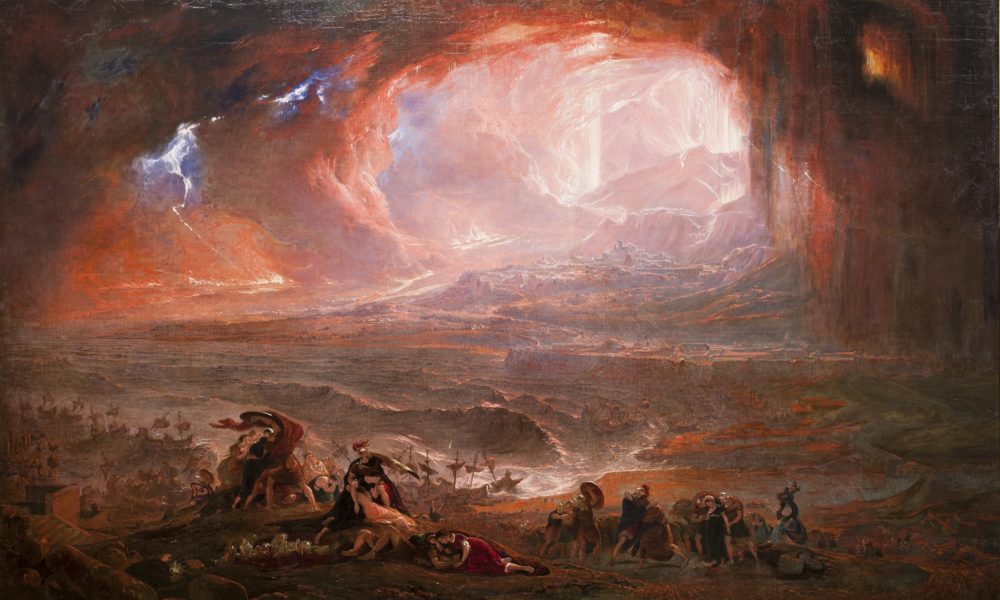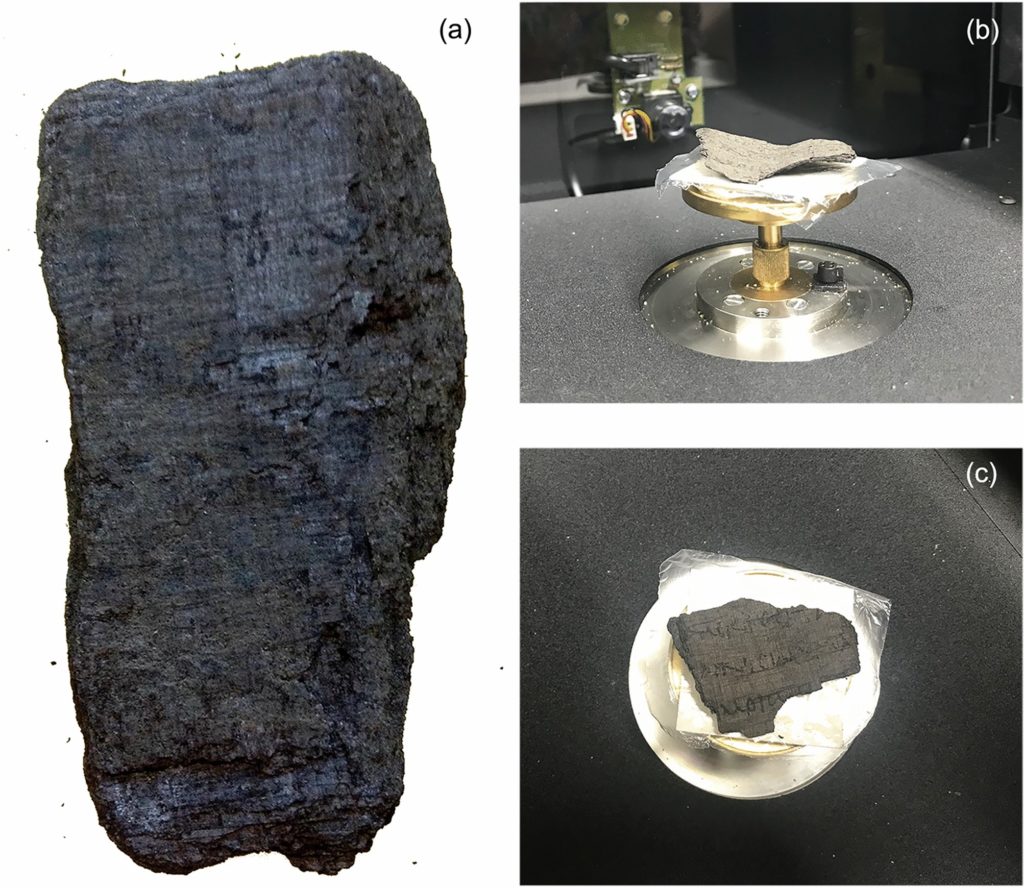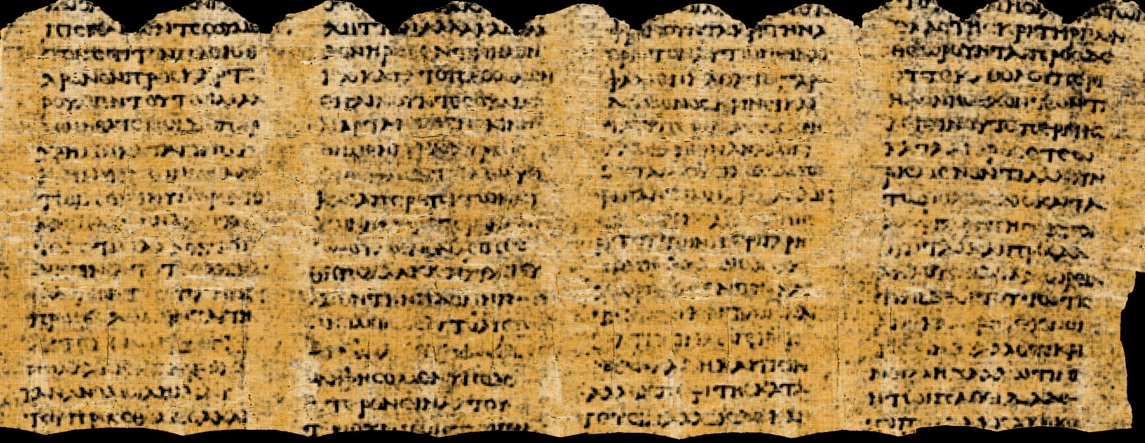
AI Exposes the Secrets of Ancient Scrolls
Have you heard of the Herculaneum scrolls? They’re a group of writings on papyrus that were charred and buried in ashes during the deadly eruption of Mount Vesuvius in 79 CE. Following the discovery of the manuscripts under 50-60 feet (15-18 meters) of volcanic mud in the 1750s, scholars and scientists have long recognized that unrolling and deciphering these badly damaged documents would be very difficult, if not impossible. The scrolls’ condition remains so fragile that the slightest breeze or attempt to spread them out could immediately turn them to powdered ash, as happened in the past using more traditional procedures.
One account about the 1,800 or so recovered scrolls states that 44 are attributed to the 1st-century BCE Greek Epicurean philosopher and poet Philodemus, who lived in Herculaneum. He is believed to have created the library where the scrolls were stored.
The secrets of these scrolls are now coming to light despite their mostly invisible ink and unrolled state. How? Reports in October 2023 announced that scholars at the University of Nebraska (USA) and Freie University Berlin (Germany) both separately deciphered the first words from one of the scrolls written by Philodemus.

Papyrus fragments PHerc.1103 (a) and PHerc.110 (b, c). Image contrast and brightness were enhanced to better visualize the details visible to the naked eye on their external surface. Photos by Sara Stabile, Francesca Palermo, Inna Bukreeva, Daniela Mele, Vincenzo Formoso, Roberto Bartolino and Alessia Cedola (Creative Commons Attribution 4.0 International license, via Wikimedia Commons)
Using X-ray micro-computed tomography (micro-CT) to scan the contents and advanced artificial intelligence (AI) trained to see the ink, researchers have begun to analyze the Herculaneum scrolls without damaging the fragile documents or even unrolling them. The micro-CT enables 3D imaging using X-rays to see inside the scrolls and the AI allows the text to be visible. These techniques made it possible to reveal the first full passages, according to computer scientists who launched the Vesuvius Challenge, a global competition to speed up the interpretation of these ancient scrolls.
AI is “the science of making machines do things that would require intelligence if done by humans.” Today, AI is involved in highly researched and sometimes controversial applications of advanced computer techniques used in myriad ways. Its uses can lead to both positive and negative outcomes. On the positive side (the focus of another article), AI has helped address some of humanity’s most pressing needs, such as providing assistance to people with disabilities, developing new drugs, reporting on sexual harassment, and fighting against human trafficking, as described by Analytics Steps.
Pertaining to the Herculaneum scrolls, AI’s use has now helped to uncover and extract the contents of these important 2,000-year-old documents charred beyond recognition, without actually touching them.
Brent Seales, a professor of computer science at the University of Kentucky (USA), the co-creator of the Vesuvius Challenge, had already invented the AI technique to virtually unwrap the scrolls and make out the ink. But as the process needed a great deal of data and progress was slow, his team launched the Challenge.
“It’s incredibly gratifying to know that these things are available, and we have now a mechanism to read them – and that reading them is going to create an entire field of study and scholarship for classicists.”
– Brent Seales

4 of 15 passages deciphered from the Herculaneum scrolls. Photo from Vesuvius Challenge.
Roger Macfarlane, a professor of classical studies at Brigham Young University, Utah (USA) who has explored the scrolls’ deciphered subject matter so far, suggests that Philodemus writes about whether pleasure can be obtained be seeking an abundance of goods, so whether materialism actually improves humans’ quality of life. In the first words revealed, the philosopher writes: “As in the case of food, we do not right away believe things that are scarce to be absolutely more pleasant than those which are abundant.” In these and the words that follow about sources of pleasure, including music, the taste of capers, and the color purple, Macfarlane believes Philodemus is making the argument that people need to “relax, value good friendships, and spend time living in the moment and enjoying pleasures.”
The Vesuvius Challenge continues, helping to decipher text from these carbonized documents using AI. The hope is that the contents of one entire scroll will be disclosed in 2024. If Philodemus’ words are any indication, this advanced technology will allow humanity to recall wise words and musings on human existence dispensed over 2,000 years ago, still relevant today.

